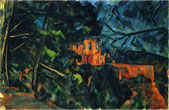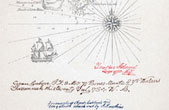Contingency and Coherency
Whoever tells stories of adventure stakes a claim to relate narration to chance. Adventures contain a moment of dangerous contingency, which, however, is narratively embedded in a context in which it is proven to be a rite of initiation or test. In other words, adventures are cases of arranged contingency: they are fueled by chance and simultaneously contain the promise of it being overcome. While adventures understood in this way represented an accepted strategy of coping with contingency from the ancient novel to the early modern period, the discontent with the arranged character of adventure narrative patterns became a veritable leitmotif in modern avant-garde literature. In the age of statistical methods and actuarial practices, the conflict between contingency and coherency that should be mediated by the adventure demands different narrative solutions.
The ambivalent position of adventure between chance and the creation of meaning touches both issues of the history of form as well as the sociology of risk. That is why the research group examines, on the one hand, the interrelationship between narrative openness and various textual structures. On the other hand, their work aims to narratologically implement the sociology and economy of risk. Examined from this perspective, adventures seem to be a fictional excess that is subtracted from economic considerations and made into a different kind of literary speculation.





